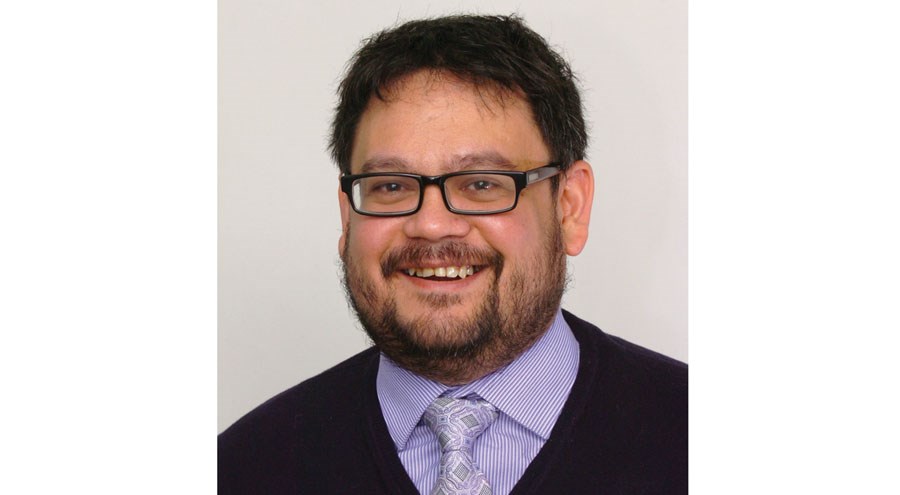My father died fairly peacefully, near one of the oceans he loved, cared for by the kind staff at Prince Rupert Regional Hospital, with my mother and I by his side.
I got to his bedside in time for him to say my name a final time. He gave me one last admonishment to smarten up and watch my silly mouth. I said all the things I wanted to say to him and I told him all the things I think he wanted to hear.
When a doctor in Prince George told him the cancer in his liver was going to kill him, he told her, "Well, I've had a good innings." That's how I fancy he handled his end - like a bowled batsman in the game of cricket he so loved, he looked at the fallen wickets, tipped his helmet to all who cared and made the long walk back to the pavilion with just a sportsman's measure of rancor and regret.
We'd talked about how he didn't want to be left without his faculties, how if his mind were gone, he did not want to linger. He only spent a few days in that shapeless opiate world of induced haze and I hope he got a death befitting a good husband, a good father and a good sailor.
But we were at the mercy of the cancer that killed him and it was at its pleasure he died. When I considered what other options were available, I quickly realized there was little I could do to help my father, from a legal standpoint. Thankfully, nothing more extreme was needed.
That's not a comfort that was granted to either Gillian or Jonathan Bennett.
Their story, chronicled by Gillian on deadatnoon.com and other media, is among the growing volume of calls to allow assisted suicide. Bennett, who faced the inexorable onset of dementia, exquisitely argues the case to be allowed to end her own life on the website and, according to The Canadian Press, killed herself with a fatal dose of barbiturates at one of her favourite places near her home on Bowen Island.
The travesty was that her husband, Jonathan, couldn't help her; Gillian couldn't risk he or any of her family or friends facing criminal charges even by obliquely aiding her.
I can't fathom the pain Jonathan must have felt as he watched his wife drag a mattress to her fateful spot, being forced to sit idle as she wrestled with her deathbed.
"That pretty much broke his heart, that he couldn't help her with that," Bennett's daughter Sara Fox told the Canadian Press. "She was pretty frail herself."
What a shame.
According to The Canadian Press, Bennett is but one courageous individual who has chosen to take something as intimate as the ending of their life and put it up in the public square to make the case for assisted suicide in the most compelling way possible.
In 2013, Dr. Donald Low, a veteran of the battle against SARS, issued a videotaped message before his death from a brain tumour. This year, a 52-year-old with Huntington's disease, Kim Teske, asked a national newspaper to document her death by "wilful starvation"; it begs the question what sort of state would force its citizens to suffer such an ordeal by refusing to allow more dignified options.
Then there's Gloria Taylor. Next month the Supreme Court of Canada will decide if its B.C. counterpart was correct in finding the existing law against assisted suicide unconstitutional. The B.C. court delayed the ruling for a year to give the federal government time to rewrite the legislation but granted Taylor leave to seek an assisted death. She died of an infection in 2010.
There are even signs of a softer line on the medical front, according to the Globe and Mail. The Canadian Medical Association recently voted to: "[support] the right of all physicians, within the bounds of existing legislation, to follow their conscience when deciding whether to provide medical aid in dying."
But the federal government and its righteous allies of the right maintain that the laws that criminalize euthanasia and assisted suicide exist, according to CP quoting then Tory Justice Minister Rob Nicholson, "to protect all Canadians, including those who are most vulnerable, such as people who are sick or elderly or people with disabilities."
Knowing that the time for more churchly arguments has past, they instead summon phantasms and bugbears. No one - not the government nor the courts nor the health-care system - can be trusted with the power to take a person's life and, according to Euthanasia Prevention Coalition lawyer Hugh Sher, "it is not possible to implement a series of safeguards that would effectively prevent abuse."
Sher's concern is valid - indeed, it's a debate all the more pointed as another court weighs the parole conditions of Robert Latimer, the Canadian farmer who was convicted of the second-degree murder of his severely disabled daughter Tracy. But part of what made the Latimer case so complicated and heart-rending was the issue of consent - according to the Saskatoon Star Phoenix and CBC News, Tracy was a 12 year old girl who could not walk or talk; Robert killed her because he felt she was in constant agony.
That's not what adults like Gillian Bennett are asking. The laws that supposedly prevent the mass killing of the disabled, the elderly as well as mass sterilization (another argument raised against euthanasia because the debate isn't hysterical enough), the same laws that convicted Robert Latimer, can be debated on their merit. But should it not be possible for a mentally competent person of the age of majority to request the assistance of a physician to end their life?
The death of Gillian Bennett may well mark the latest watershed in the debate over assisted suicide in B.C. and Canada. Nevertheless, she deserved better. She didn't deserve to shuffle off this mortal coil.
She deserved a more graceful exit.



